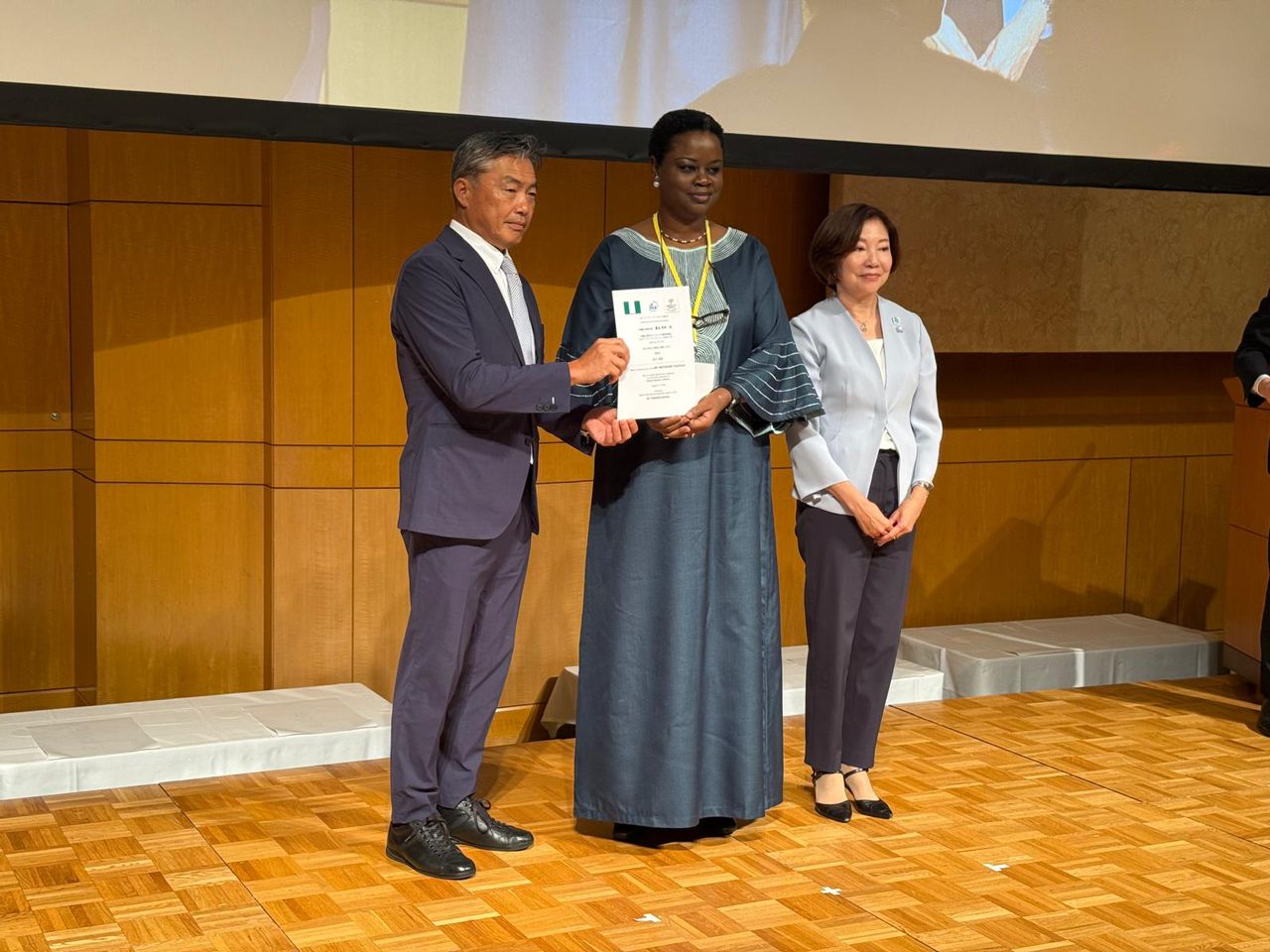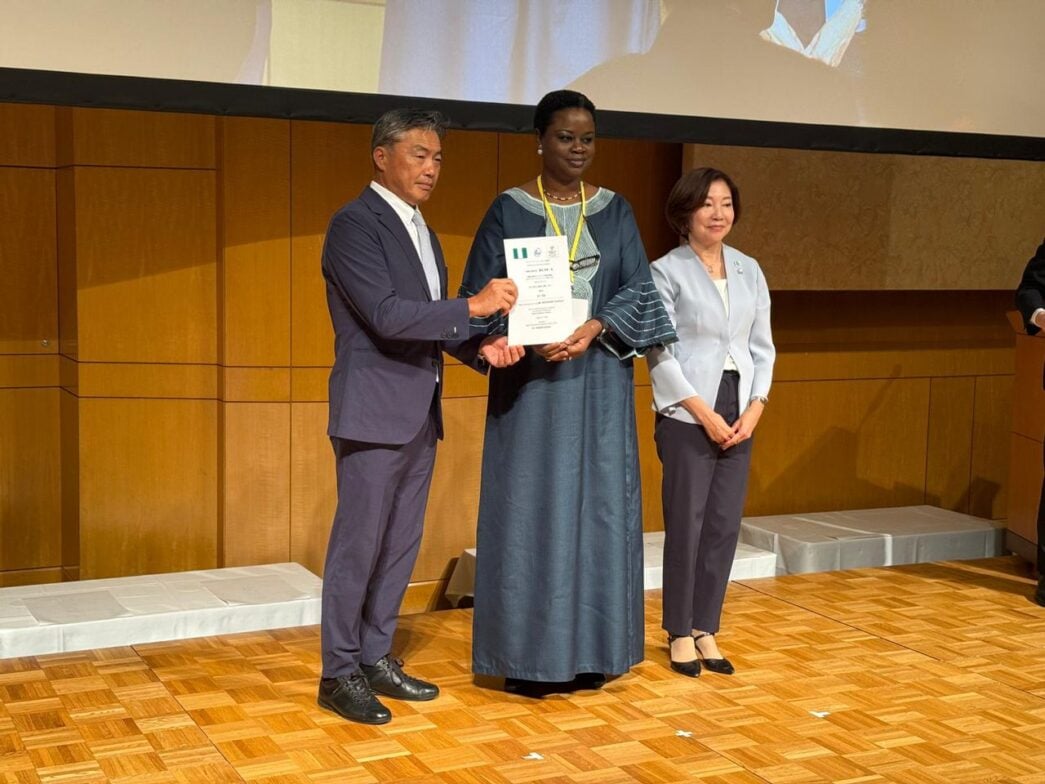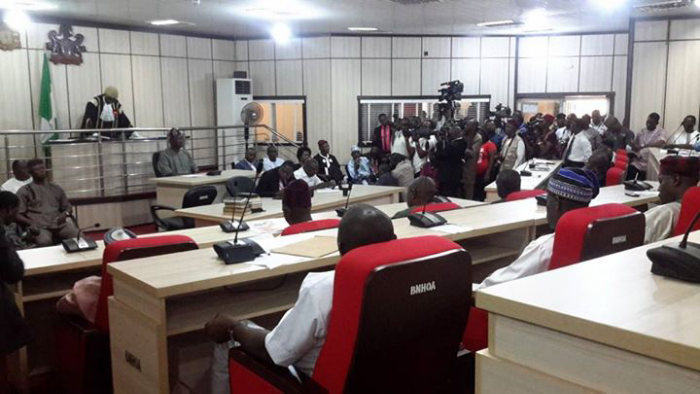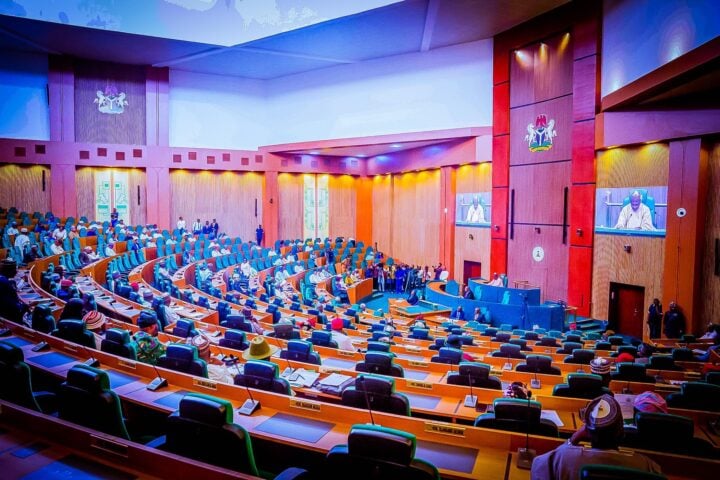Florence Akinyemi, Nigeria's Charge d'Affaires and acting ambassador to Japan; with Yoshikuni Watanabe, mayor of Kisarazu, receiving the certificate from the Japanese government naming Kisarazu the hometown of Nigerians
The Japanese government has designated the city of Kisarazu as the official hometown for Nigerians willing to live and work in Japan.
This is part of a strategic initiative to deepen cultural diplomacy, promote economic growth, and enhance workforce productivity.
The announcement was made on the sidelines of the 9th Tokyo International Conference for African Development (TICAD9).
Florence Akinyemi Adeseke, Nigeria’s charge d’’affaires and acting ambassador to Japan, received the certificate that officially named Kisarazu as Nigeria’s hometown.
Advertisement
According to the announcement, under the new partnership, Japan will introduce a special visa category for highly skilled, innovative, and talented young Nigerians who wish to relocate to Kisarazu.
Artisans and other blue-collar Nigerian workers seeking to upskill will also benefit from this visa scheme.
The initiative is expected to foster two-way exchanges that will contribute to the economic growth and regional revitalisation of both nations.
Advertisement
Kisarazu previously hosted the Nigerian contingent for the 2020 Tokyo Olympics, serving as their pre-games training base.
In a ceremony, the Japan International Cooperation Agency (JICA) also named Nagai in Yamagata Prefecture as the hometown of Tanzania, Sanjo in Niigata Prefecture as the hometown of Ghana, and Imabari in Ehime Prefecture as the hometown of Mozambique.
These designations aim to strengthen bilateral exchanges and manpower development between Japan and the African nations.
At TICAD9, Shigeru Ishiba, Japanese prime minister, announced $5.5 billion in new investments in Africa, highlighting the importance of mutual understanding, local solutions, and collaborative efforts for sustainable development.
Advertisement
He emphasised Japan’s focus on private sector-led growth, youth and women empowerment, and regional integration.
Ishiba also acknowledged Japan’s demographic challenges and called on African nations to support Japan as it addresses issues related to a declining population and shrinking agricultural land.










